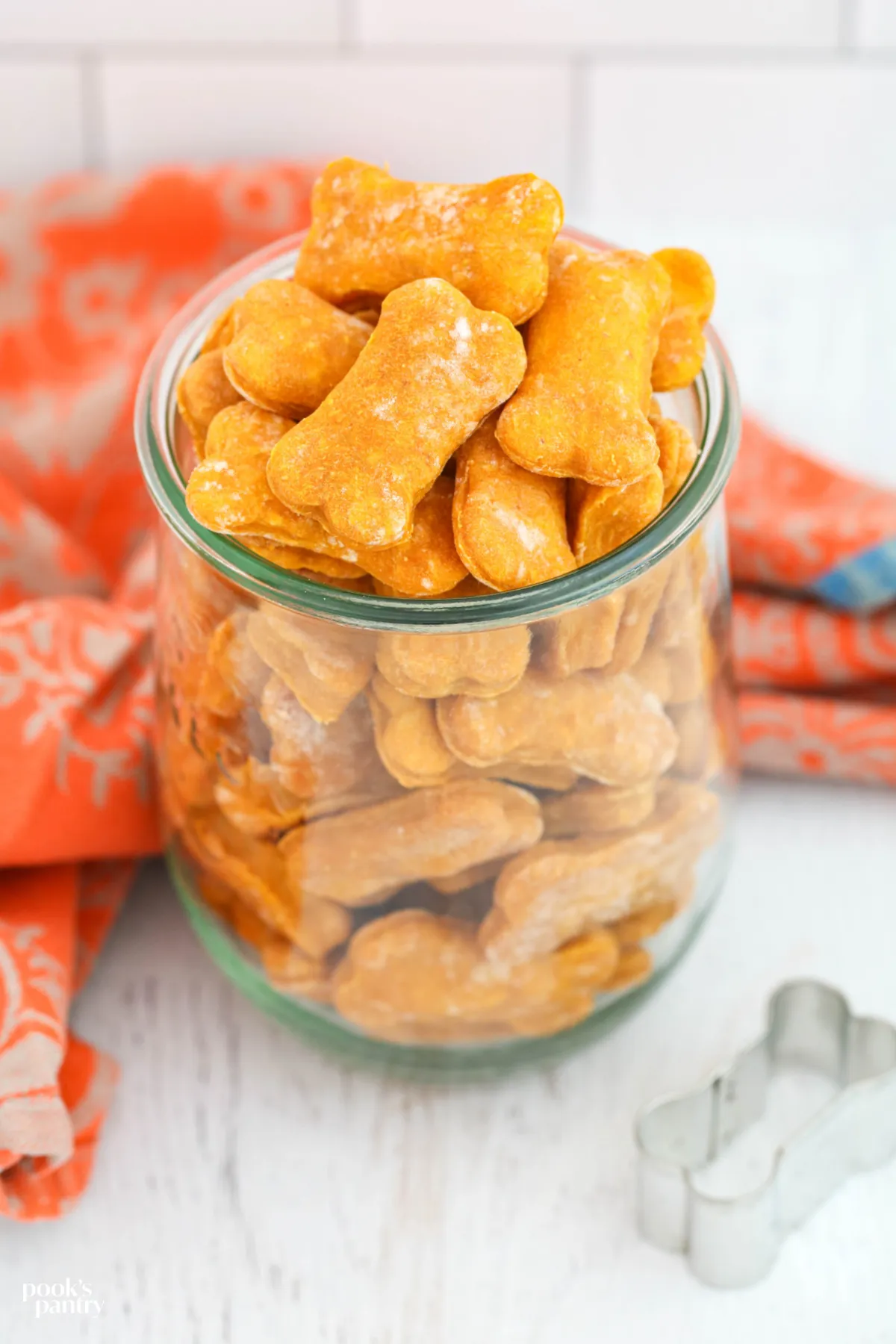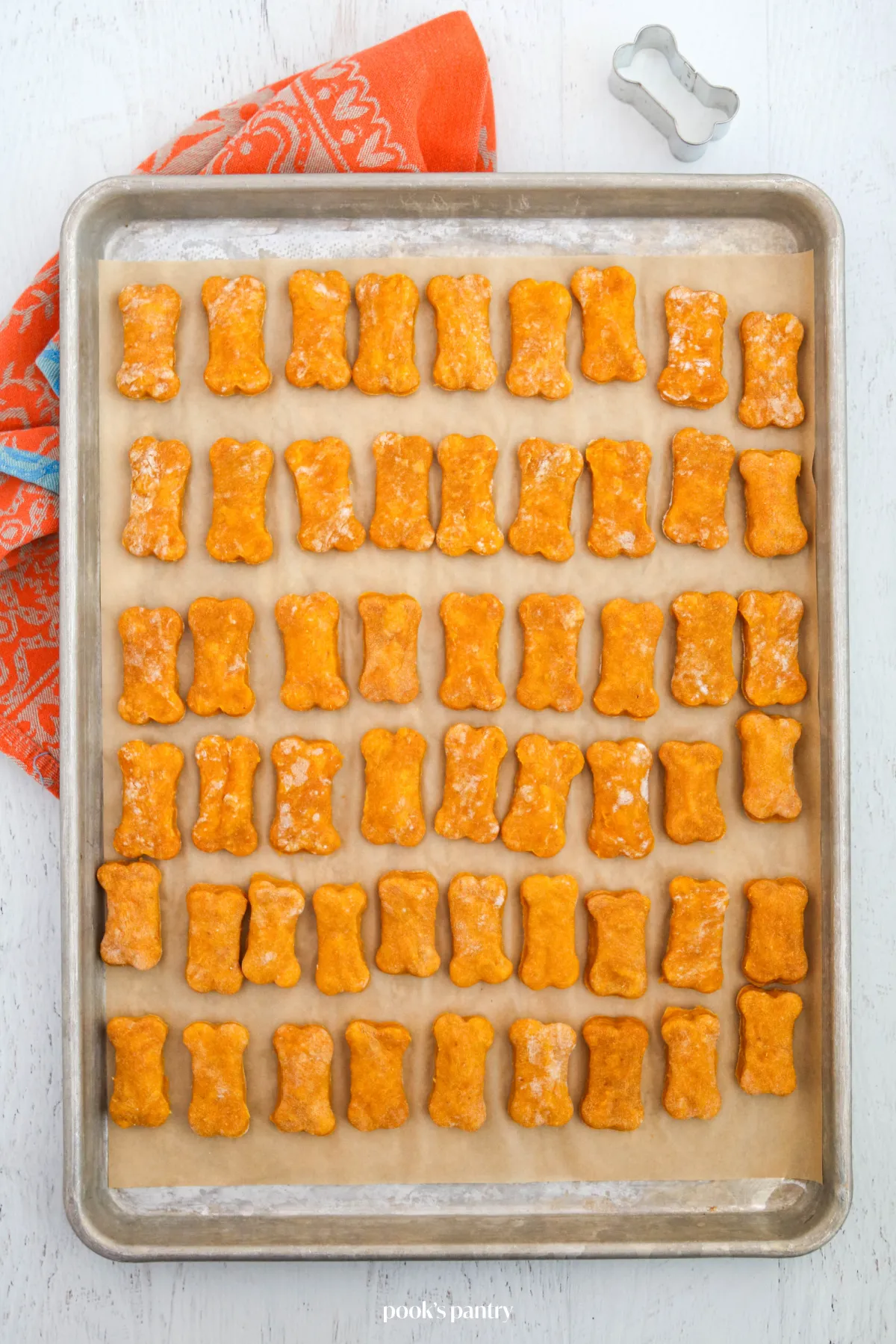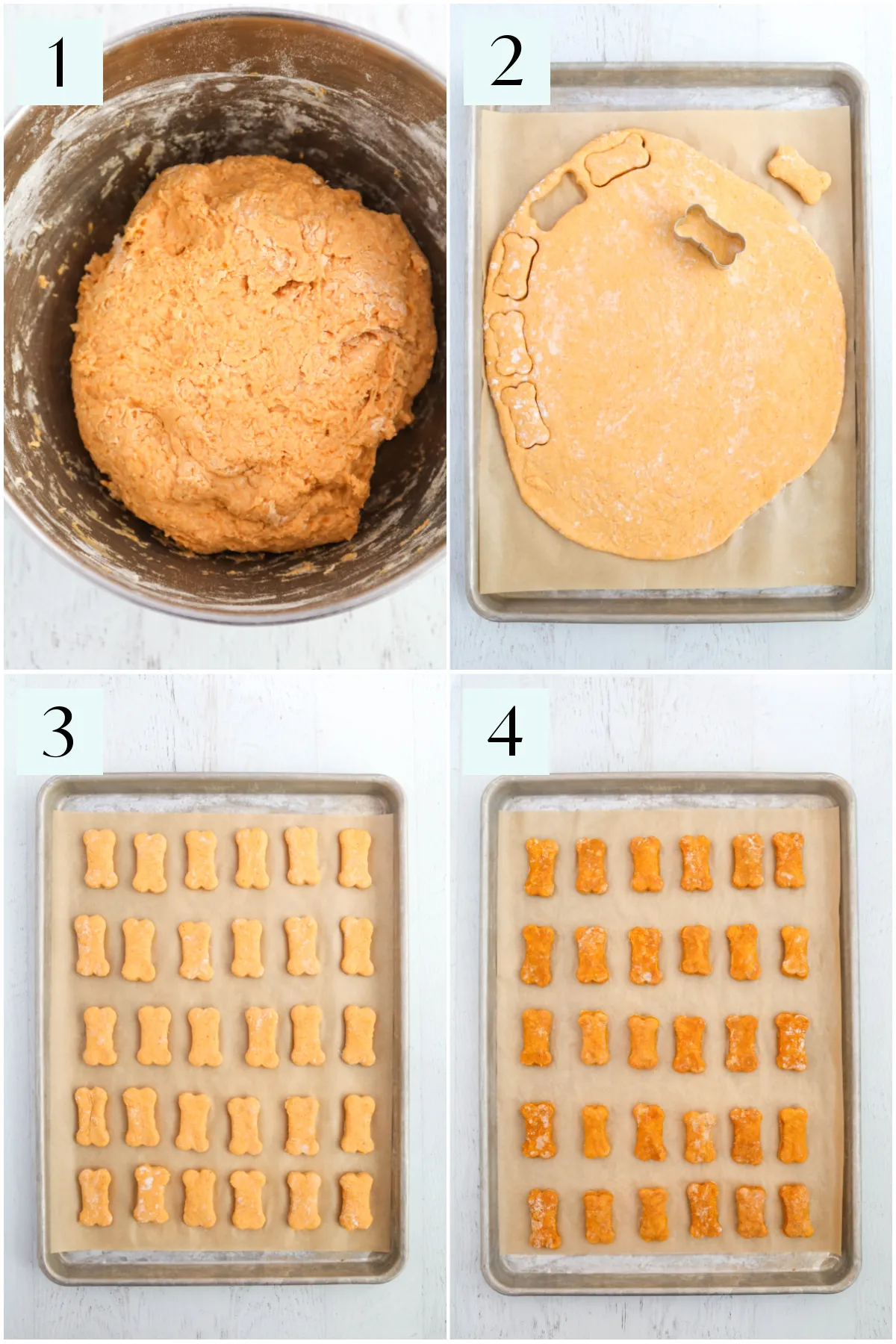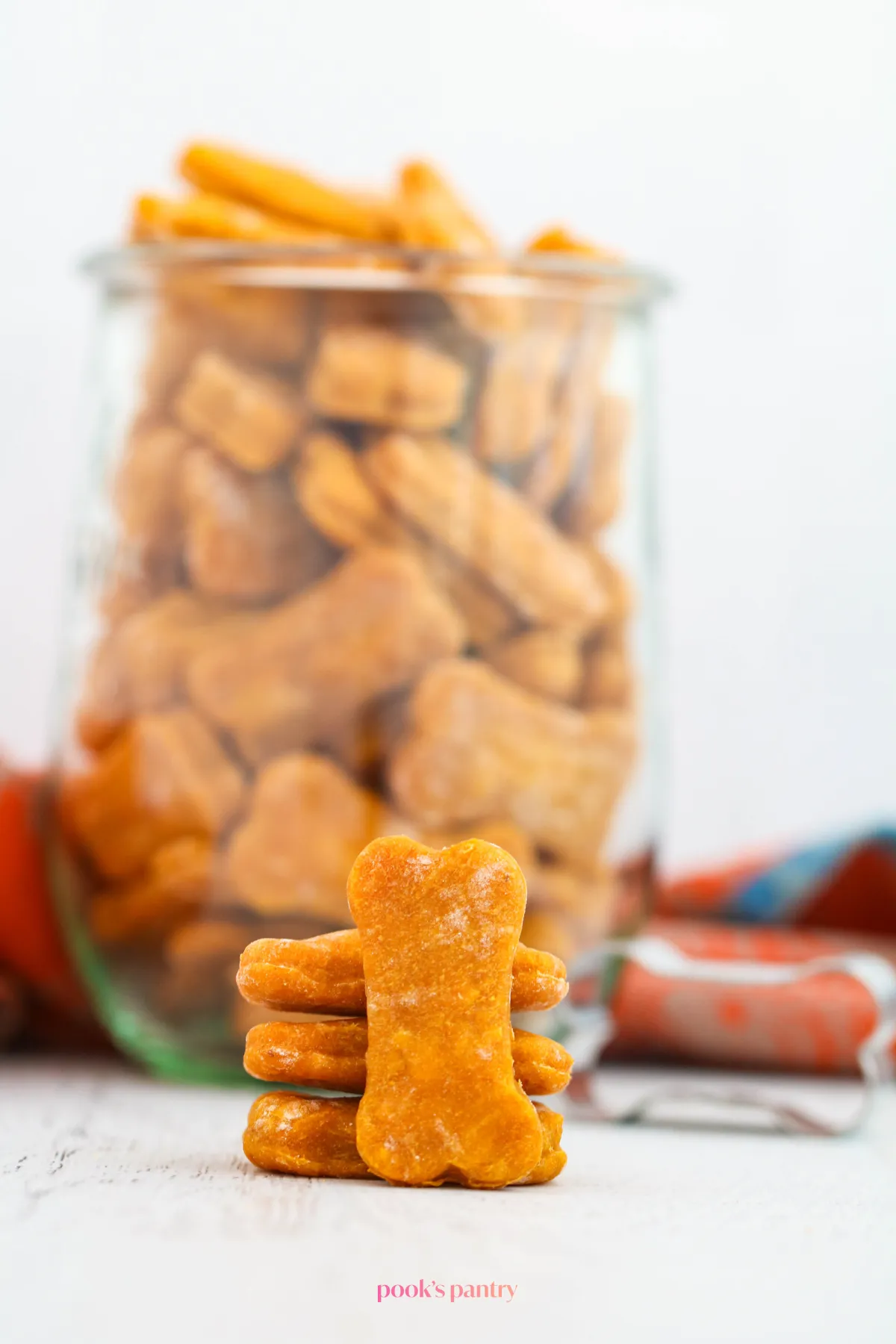As our beloved canine companions age, their needs evolve, especially when it comes to diet. One common challenge faced by senior dogs or those with dental issues is the inability to chew hard treats. Providing soft, palatable options becomes crucial not only for their enjoyment but also for their overall health and well-being. This guide offers an easy-to-follow recipe for delicious Homemade Treats For Dogs With No Teeth, featuring the wholesome goodness of pumpkin. These soft, low-fat bites are perfect for ensuring your furry friend can still enjoy a tasty snack without discomfort.
Dogs with missing teeth, gum disease, or sensitive mouths often struggle with commercial kibble or crunchy biscuits. Offering specially designed soft treats can prevent pain, frustration, and even potential choking hazards. Our pumpkin dog treats are crafted to be gentle on delicate mouths, providing essential nutrients while being incredibly easy to prepare in under 30 minutes.
Why Soft Treats are Essential for Dogs with Dental Issues
Understanding your dog’s oral health is paramount. Dental disease is rampant in dogs, especially as they get older, often leading to tooth loss, pain, and difficulty eating. For dogs coping with these challenges, hard treats are simply not an option. Here’s why soft treats, like these pumpkin bites, are a game-changer:
- Pain-Free Chewing: Hard textures can aggravate sensitive gums or cause pain where teeth are missing. Soft treats allow your dog to enjoy chewing without discomfort.
- Preventing Choking Hazards: Dogs with fewer teeth may try to swallow hard treats whole, posing a choking risk. Soft treats are easier to break down and swallow.
- Maintaining Nutritional Intake: If your dog avoids food due to dental pain, they might not get adequate nutrition. Palatable soft treats can help stimulate their appetite.
- Enhancing Quality of Life: Treats are a source of joy for dogs. Providing a treat they can safely and comfortably eat significantly improves their quality of life.
When choosing any food for your dog, it’s vital to consider all aspects of their health. For more insights into generally healthy food for dogs, explore our comprehensive guides.
 Soft pumpkin dog treats in a glass jar with an orange towel behind it, ready for pets with sensitive teeth.
Soft pumpkin dog treats in a glass jar with an orange towel behind it, ready for pets with sensitive teeth.
The Benefits of Pumpkin in Dog Treats
Pumpkin is a nutritional powerhouse for dogs, making it an excellent base for these soft, dental-friendly treats.
- Digestive Health: Rich in fiber, pumpkin aids digestion, helps regulate bowel movements, and can be beneficial for dogs with mild constipation or diarrhea.
- Rich in Vitamins: Pumpkin is packed with essential vitamins like Vitamin A (for vision), Vitamin C (for immune health), and Vitamin E (an antioxidant).
- Moisture Content: Pure pumpkin puree adds significant moisture to the treats, contributing to their soft texture, which is crucial for dogs with no teeth.
- Low in Calories: Pumpkin is naturally low in calories and fat, making these treats a guilt-free option, especially for less active senior dogs.
It’s important to use 100% pure pumpkin puree, not pumpkin pie filling, as pie filling contains added sugars and spices that are not suitable for dogs.
Simple Ingredients for Soft, Toothless-Friendly Dog Treats
This recipe for homemade treats for dogs with no teeth requires just four common ingredients, making it incredibly simple to whip up a batch.
 Soft dog treats on a sheet pan with an orange towel underneath, freshly baked and ready for gentle chewing.
Soft dog treats on a sheet pan with an orange towel underneath, freshly baked and ready for gentle chewing.
- Canned Pumpkin Puree: (1 cup) – The star ingredient, ensuring moisture and that signature soft texture.
- Substitution: You can use baked fresh pumpkin, butternut squash, or sweet potato puree. Always ensure it’s pure, unsweetened.
- Applesauce: (½ cup) – Another moistening agent that adds a touch of natural sweetness without added sugar. Look for plain, unsweetened applesauce with only apples, water, and perhaps Vitamin C in the ingredients list.
- Large Egg: (1) – Acts as a binder, giving the treats structure while contributing to their soft consistency.
- All-Purpose Flour: (3 ½ cups, or 420g) – Provides the bulk of the dough.
- Substitution: For dogs with sensitivities, you can easily swap this for whole wheat flour or a gluten-free flour blend. Always check if what vegetables should dogs not have or other ingredients might impact your dog’s specific dietary needs.
These ingredients are generally safe and beneficial for most dogs, but always consult your veterinarian if your dog has specific dietary restrictions or allergies.
 Ingredients for homemade pumpkin dog treats laid out on a white background, including pumpkin puree, applesauce, egg, and flour.
Ingredients for homemade pumpkin dog treats laid out on a white background, including pumpkin puree, applesauce, egg, and flour.
Step-by-Step Guide: Making Your Dog’s New Favorite Soft Treats
Making these homemade treats for dogs with no teeth is a straightforward process, even for beginner bakers.
- Preparation: Preheat your oven to 350°F (180°C). Line a baking sheet with parchment paper.
- Mix Wet Ingredients: In a medium-sized mixing bowl, whisk the egg until lightly beaten. Add the applesauce and canned pumpkin puree, mixing well until thoroughly combined.
- Incorporate Flour: Gradually add the all-purpose flour to the wet ingredients, stirring until a soft, pliable dough forms. The dough should be easy to work with but not sticky.
- Roll and Cut: Lightly flour your counter or a large cutting board. Turn out the dough and knead it a few times to ensure uniformity. Using a floured rolling pin, roll the dough to approximately 1/8 inch thickness. Use a small cookie cutter (e.g., bone-shaped or round, about 2 inches) to cut out your treats. Dipping the cookie cutter in flour helps prevent sticking.
- Re-roll Scraps: Gather any dough scraps, gently re-roll them, and cut out more treats until all the dough is used.
- Bake: Place the cut-out treats on your prepared baking sheet, leaving a small space between each. Bake for approximately 18 minutes, or until the edges are lightly golden. If you use larger cookie cutters for bigger dogs, you may need to increase baking time by a few minutes.
- Cool Completely: Remove the treats from the oven and let them cool completely on the baking sheet. They will be soft right out of the oven and will maintain their softness after cooling.
 Step-by-step photos illustrating how to make soft pumpkin dog treats, from mixing ingredients to rolling and cutting dough.
Step-by-step photos illustrating how to make soft pumpkin dog treats, from mixing ingredients to rolling and cutting dough.
Tips for Success
- Dough Consistency: This is a soft dough, making it forgiving and easy to handle. If it feels too sticky, add a tiny bit more flour. If it’s too dry, a teaspoon of water or applesauce can help.
- For Extra Chewing Difficulty: If your dog has severe chewing problems, break these treats into even smaller, bite-sized pieces before serving. This was a helpful practice for our dog, Sugar, after she had several teeth removed.
- Flavor Variations: While this recipe focuses on pumpkin, you can experiment with other dog-safe purees like sweet potato or butternut squash. Ensure any additions are safe; for instance, understanding what veggies dogs can’t eat is vital.
Storage and Freshness: Keeping Your Soft Treats Perfect
Because these homemade treats for dogs with no teeth contain no artificial preservatives, proper storage is key to maintaining their freshness and preventing mold.
- Refrigeration: Store the treats in an airtight container in the refrigerator for up to two weeks.
- Freezing: For longer storage, place the treats in an airtight freezer-safe container or bag. They can be frozen for up to three months. When needed, simply take out a few and let them thaw in the refrigerator or at room temperature.
- Avoid Countertop Storage: Unlike many store-bought crunchy treats, these soft treats will mold if left at room temperature for more than a few days, especially in humid climates. Treat them like any other fresh baked good.
A smart strategy is to freeze most of your batch and keep a small handful in the refrigerator for daily use, replenishing as needed.
 Pumpkin treats for senior dogs displayed in a glass jar, with a few treats stacked in front, emphasizing their soft texture.
Pumpkin treats for senior dogs displayed in a glass jar, with a few treats stacked in front, emphasizing their soft texture.
Frequently Asked Questions About Soft Dog Treats
Can I add other ingredients to these homemade treats?
You can experiment with adding other dog-safe ingredients like a pinch of cinnamon (beneficial for blood sugar regulation) or cooked, mashed sweet potato instead of pumpkin. However, always double-check the safety of any additions for dogs, especially regarding things like [what human peanut butter is safe for dogs](https://dogcarestory.com/what-human-peanut butter-is-safe-for-dogs/) if you’re considering nut butters (though this recipe is intentionally peanut butter-free).
Are these treats suitable for puppies or young dogs?
Yes, these soft treats are generally suitable for dogs of all ages, provided they don’t have allergies to the ingredients. Their soft texture makes them easy for puppies to chew as well. However, always feed treats in moderation as part of a balanced diet.
My dog is on a special diet. Can I adjust the recipe?
If your dog is on a prescription diet or has specific health concerns (like kidney disease or pancreatitis), it’s always best to consult your veterinarian before introducing new treats or making substitutions to ensure they align with their dietary needs.
How do I know if my dog has dental issues that require soft treats?
Signs of dental issues can include bad breath, visible tartar on teeth, red or swollen gums, difficulty eating, dropping food, pawing at the mouth, or a change in chewing habits. If you notice any of these signs, a vet check-up is recommended.
Conclusion
Providing delicious and safe treats for dogs with no teeth or dental issues doesn’t have to be complicated. This recipe for homemade treats for dogs with no teeth offers a simple, healthy, and highly palatable solution. By taking a little time to prepare these soft pumpkin bites, you’re not only giving your furry friend a delightful snack but also showing them extra care and consideration for their unique needs. Your dog deserves to enjoy every bite, regardless of their dental challenges.
References
- American Veterinary Medical Association. (n.d.). Oral Health: What You Should Know.
- The Kennel Club. (n.d.). Feeding your Senior Dog.
- Veterinary Oral Health Council. (n.d.). Accepted Products.
